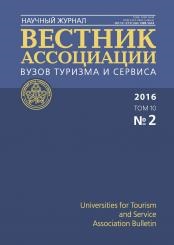Moscow, Russian Federation
The article discusses the problem of relations between literature and folklore, as well as the role of folk tales about treasures and treasure hunters in the artistic structure of texts for children. Writers often turn to the genre of legend, not only in order to create an adventure intrigue, but also with the ideological and upbringing goals and objectives. Appeal to the folklore helps the author to revive people’s ideals and folk wisdom in the new direction, corresponding to its ideological and artistic, ethical and aesthetic preferences. P. Bazhov echoes folk wisdom, legends about treasures and treasure hunters in his "Tales". The poor is rewarded as a rule, for his best qualities: tolerance, humility, diligence and kindness. In "the Bronze bird" by A. Rybakov, the treasure is distributed in accordance with other ideological and artistic goals and objectives that the author aims to solve. The New Soviet government gets the treasure, because in accordance with the new ideology not a specific person must be rich, but the society as a whole. The individual is understood the moral in that case, if he cares not about personal enrichment and prosperity, but about the construction of the new Soviet State. In American novel for children by Mark Twain «The Adventures of Tom Sawyer" finding the treasure by the guys has a different meaning: pragmatic ordering money guys ensure themselves a prosperous future. In General, the author's appeal to the genre about treasures and treasure hunters in children's literature is not only hedonistic, but also upbringing in nature.
folklore, legend, treasure, upbringing, children's literature
1. Berzer A. Tayna kortika i pobeda Krosha // Oktyabr'. 1961. № 1. S. 36.
2. Vladimirov V. «Po stepeni dobrogo chuvstva…» // Molodoy kommunist. 1969. № 12. S. 116-118.
3. Ivanov S. O tvorchestve Rybakova / A. Rybakov. Kortik. Bronzovaya ptica. M.: Gos. Izd-vo detskoy literatury. M., 1962. 429 s.
4. Krinichnaya N.A. Russkaya narodnaya istoricheskaya proza. Voprosy genezisa i struktury // Demos. Berlin, 1989/2. Vyp. 29. № 163. S. 136.
5. Narodnaya proza. Sost., vstup. st., podgotovka tekstov i komment. S.N. Azbeleva. M.: Russkaya kniga, 1992. 608 s.
6. Smirnova V. Ob avtore etoy knigi // A. Rybakov. Bronzovaya ptica. Povesti. M.: Det. lit., 1971. S. 6.
7. Sokolova V.K. Russkie istoricheskie predaniya. M.: Nauka, 1970. 290 s.
8. Starikova E. Tvorcheskiy put' A. Rybakova / A. Rybakov. Povesti. M.: Hud. lit., 1969. S. 3-20.
9. Tverskoy A. Ot «Kortika» do Krosha // Detskaya literatura. № 1. 1971. S. 23-24.





